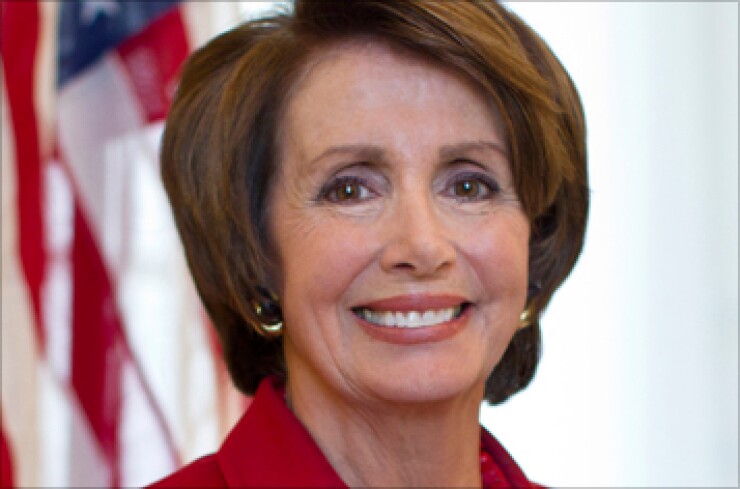
WASHINGTON – As Puerto Rico faces bond defaults on Monday and July 1 without legislative relief from Congress, analysts say new litigation is increasingly likely.
The current bill pending in the House, which hasn't moved since the House Natural Resources Committee cancelled an April 14 vote because of a lack of support, seeks to balance competing interests by creating an oversight board that can both get Puerto Rico's fiscal house in order and start the debt restructuring process.
The seven-member, presidentially-appointed oversight board would have the power to require balanced budgets, address pension liabilities, and file debt restructuring petitions on behalf of the commonwealth and its entities in a federal district court as a last resort if voluntary negotiations do not succeed.
House Speaker Paul Ryan, R-Wis., said at his weekly briefing with media on Thursday that the administration and committee "are getting very close" to a revised version of the bill that responds to the remaining concerns from both parties.
"They're working to put something together so that when we return from our work period [after] next week we will have something more specific," Ryan said. The House is scheduled to return on May 10.
House Minority Leader Nancy Pelosi, D-Calif., said on Friday that she still believes that Republicans and Democrats are "working in good faith" on the revised bill but that Ryan should soon consider stepping in to help guide it through the House.
"The speaker has an overriding principle which is the committees shall do the work," Pelosi said. "But at some point, there's going to have to be a moment where there's going to be a leadership decision that this is as good as it gets and this is what we're taking to the floor."
Conservative Republicans have condemned the bill for proposing a restructuring solution very similar to that of Chapter 9 bankruptcy without calling it Chapter 9. They say giving Puerto Rico access to such a solution sets a dangerous precedent for financially troubled states to request the same treatment. Democrats, who have looked to the Treasury Department to sign off on the bill, also have some issues with the restructuring process, saying it will be too hard to trigger and will thus cause unnecessary delays.
The commonwealth is currently faced with roughly $70 billion of public debt and $46 billion of unfunded pension liabilities. Its Government Development Bank has a $422 million payment due Monday. But Gov. Alejandro Garcia Padilla has said the GDB will be unable to make the payment and will default on the bonds.
The commonwealth on July 1 will have to make a $2 billion payment on debt that includes $800 million of general obligation bonds. The GO bonds come with a constitutional guarantee that the payments will be made ahead of those for essential services.
Matt Fabian, a partner with Municipal Market Analytics, said that Congress probably won't act until the situation in Puerto Rico further deteriorates. He said debate on the bill could drag on over the summer.
In addition, the bill could face a more difficult test in the Senate as some members are worried it does not go far enough in addressing entrenched issues like the fiscal mismanagement that led Puerto Rico to where it is now, Fabian added.
If opponents continue to fight its passage until conditions in Puerto Rico worsen, Congress could pass short-term legislation to deal with the fallout from defaults as "a Band-Aid" before larger fixes take place, he said.
Daniel Hanson, an analyst at Height Securities, said if Congress does not pass a bill before July 1, it is likely that the legislators will put the issue off indefinitely and leave it up to the courts to deal with lawsuits from bondholders trying to collect on their investments.
"Nobody wants to bring Puerto Rico with them on the campaign trail," Hanson said. "There's not enough bandwidth to drag Puerto Rico deep into the summer."
Both Hanson and Fabian said it may actually be good if the courts are allowed to try resolve disputes arising from bondholders' indentures before Congress passes a bill.
"It might not be the worst solution to let a court take the first crack at figuring out bondholder priority," Fabian said. That would allow Congress to build off of a court's decision when crafting legislation, he added.
"I think the strength of various bond indentures in Puerto Rico really ought to be tested," Hanson said. "It's clear that the legal strength of various credits in Puerto Rico is in fact well-established."
Hanson also said the Puerto Rico Supreme Court, rather than a federal court, may be the best place for bondholders to bring legal challenges if defaults occur on July 1.
"I think the Puerto Rican Supreme Court is likely to vigorously defend its constitution," he said. "That is likely to manifest itself both in those who hold constitutionally-backed debt but also probably more importantly in getting a very fast decision out of the Puerto Rican Supreme Court."
Having a court rule on GO bondholder rights would allow "everything to kind of flow from there" and establish a standard for holders of each type of bond in the hierarchy to have a better sense of where they stand and what their options may be, Hanson added.





